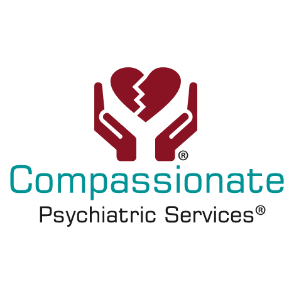
Sleep is critical to your health and well-being, it should not be considered a luxury.
With all the research and study of the brain these days, there are many studies that link sleep to physical and mental well-being. As we focus on national sleep awareness week, we also highlight why sleep is integral to your overall mental and physical health and how you can improve it.
What are the sleep stages and how does each stage impact your well-being?
Latency or NREM stage 1 is the first stage of sleep. This is where your brain activity slows along with the slowing of eye movement, heartbeat, and breathing; and your entire body relaxes.
Light sleep or NREM stage 2 is where you spend approximately 50% of your sleep time. This is where you become less aware of your surroundings, your body temperature drops, your eye movement stops, and your breathing and heart rate become slow and regular.
NREM stage 3 is a period of deep sleep where all noises and activity fall away from the sleeper’s awareness. During this stage of sleep, the body starts to physically repair itself while your brain begins to consolidate your memories, general knowledge, and personal experiences.
Deep sleep or REM stage 4 where your body becomes immobilized and your brain’s activity most closely resembles the activity while you’re awake. Though your brain is active, your body is temporarily paralyzed making it impossible to act out your dreams. This stage of sleep is when your brain commits information to memory and when your emotions are processed and stored.
What factors contribute to the interruption of quality sleep?
Age as we get older, we sleep lighter, and we are more easily awoken.
Nocturia– having to frequently awaken in the night to urinate.
Sleep disorders Insomnia, narcolepsy, sleep apnea, and restless leg syndrome are all disorders that can negatively affect your ability to get quality sleep.
Mood disorders and health conditions depression and bipolar disorder and health conditions such as Alzheimer’s, Parkinson’s, and obesity all have an impact on your ability to get quality sleep.
Lifestyle and habits lack of exercise, smoking, and excessive caffeine and alcohol intake can make it impossible to get good sleep.
Why is it important to concentrate on healthy sleep habits? There are many short and long-term reasons to make healthy sleep something to focus on. When you don’t cycle through the stage of sleep your ability to focus and learn becomes impaired and you may lose the ability to be creative. Making rational decisions and problem-solving can become impaired as well as the ability to control your emotions and behaviors. When you suffer from disrupted sleep you are at a higher risk for inflammation, high blood pressure, heart disease, and diabetes.
Follow these steps to improve your sleep:
- Figure out a sleep schedule that works and stick to it even on the weekends.
- Early morning light exposure plays a central role in regulating your circadian rhythm, otherwise known as your body’s internal clock, and increases melatonin production, a sleep-promoting hormone.
- Where natural light helps improve sleep, artificial light from a television, computer, or cellular phone especially within a few hours of bedtime, has a negative impact on sleep health.
- Avoid eating or drinking within 3 hours of bedtime. Alcohol, sugar, and caffeine all negatively impact your sleep.
- Your sleeping area should be kept at 60-65 degrees, which is the optimal sleeping temperature according to science. Make sure your room is also dark and quiet.
Sleep and mental health are intertwined and it becomes even more apparent by reviewing what is known about how sleep is tied to a number of specific mental health conditions and neurodevelopmental disorders, some of which are:
Depression is a type of mood disorder marked by feelings of sadness or hopelessness. Historically, sleeping problems were seen as a consequence of depression, but growing evidence suggests that poor sleep may induce or exacerbate depression.
Seasonal affective disorder (SAD) is a subtype of depression that most often affects people during times of the year with reduced daylight hours. This condition is closely tied to the disruption of a person’s internal biological clock, or circadian rhythm, which helps control multiple bodily processes, including sleep.
Anxiety disorders have a strong association with sleeping problems. Worry and fear contribute to a state of hyperarousal in which the mind is racing, and hyperarousal is considered to be a central contributor to insomnia. Sleep problems may become an added source of worry, creating anticipatory anxiety at bedtime that makes it harder to fall asleep.
Bipolar disorder involves episodes of extreme moods that can be both high (mania) and low (depression). A person’s feelings and symptoms are quite different depending on the type of episode; however, both manic and depressive periods can cause major impairment in everyday life. In people with bipolar disorder, sleep patterns change considerably depending on their emotional state. During manic periods, they usually feel less need to sleep, but during depressed periods, they may sleep excessively. Sleep disruptions often continue when a person is between episodes].
Schizophrenia is a mental health disorder characterized by difficulty in differentiating between what is and what is not real. People with schizophrenia are more likely to experience insomnia and circadian rhythm.
Attention-deficit/hyperactivity disorder (ADHD) is a neurodevelopmental disorder involving reduced attention span and increased impulsiveness and sleep disturbances which include difficulty falling asleep, waking up frequently, and excessive daytime sleepiness.
Autism Spectrum Disorder (ASD) is a term that encompasses several neurodevelopmental conditions affecting communication and social interaction. These conditions are usually diagnosed early in childhood and may persist in adulthood.
If you suffer from sleep disturbances relating to mental health disorders or the many sleep disturbance factors, seeking professional treatment may help prevent further mental health or physical complications. If you or a loved one struggles with symptoms related to sleep disturbances, Compassionate Psychiatric Services may be the solution for you. Give our office a call today at 469-200-4093 and speak with a specialist. For more information visit our website at www.compassionatepsychiatry.org

